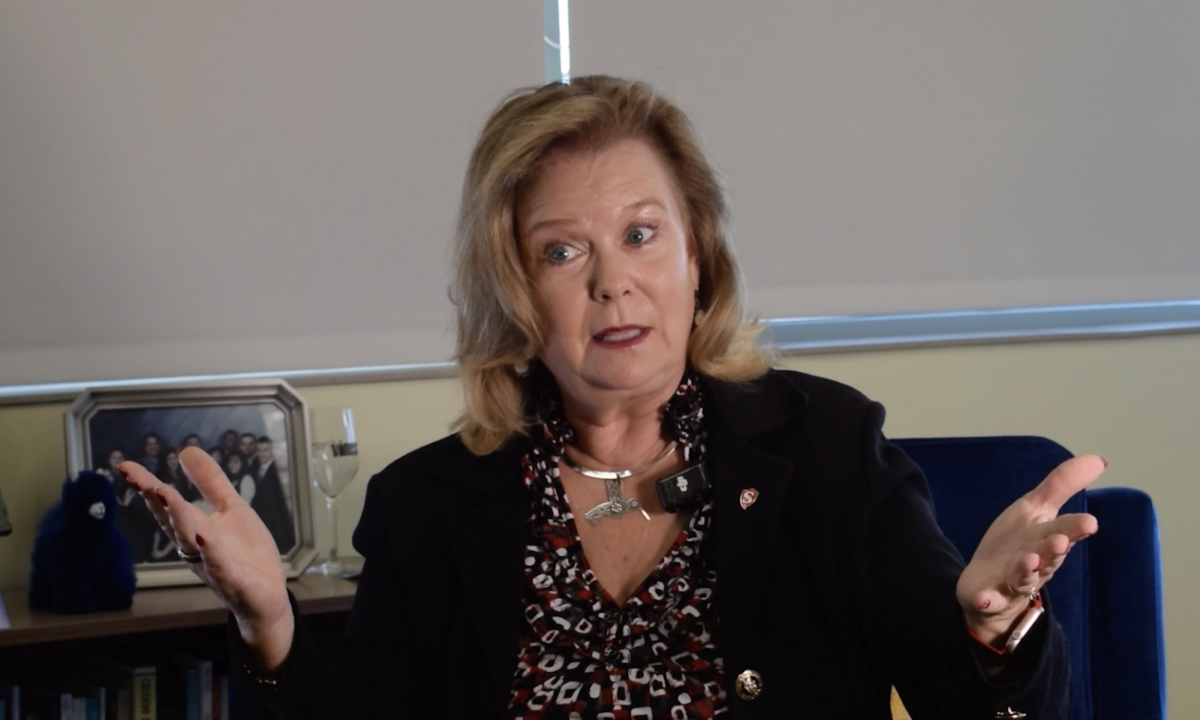
In today’s Academic Senate session, the Senate voted to suspend the current two-pass class registration system and replace it with a new one-pass system, as well as to approve a new certification in the Business program that is designed to launch the careers of aspiring accountants.
The Senate meeting also saw the California Faculty Association (CFA) press the issue of ensuring faculty bring union representatives with them when meeting with administrators and of the upcoming elections next month to secure funding for the CSU.
Academic Senate Approves New One-Pass Registration System
UEPC Chair Mechelle Perea-Ryan introduced this resolution to the floor, and elaborated on the concerns brought up by some senators in the previous Academic Senate session.
This new registration system would go through a single pass before open registration where students, after their registration date, can sign up for up to 15 units and register for waitlists in classes that are already full. During the open registration period, students can then register for up to 18 units.
Chair Perea-Ryan addressed the concerns raised in the previous senate session that certain math and computer science courses would fill up too fast under the one-pass system and that freshmen and sophomores would be unable to sign up for these prerequisite courses.
Chair Perea-Ryan said that the UEPC looked into this and found that the proposed changes to registration would not affect freshmen and sophomores’ ability to get into these courses in a timely manner.
Senator Cassandra Drake spoke up to concur with Perea-Ryan’s points. Drake said that her decision to support the resolution is influenced by “who our students are,” referring to the fact that our population is mostly first-generation students, and that the current two-pass system causes too much confusion for those already unfamiliar with higher education.
Drake also said the changes to registration make sense with the “fluctuating nature of our enrollment” and with scheduling classes, which is currently a problem a number of departments are facing.
The conversations around scheduling courses and how many sections of a course should be made available would be facilitated by having data on which courses need additional sections to accommodate student demand earlier, Drake argued.
The resolution was brought to a vote and passed with 33 in favor, two against and one abstention. If signed by the university president, the new registration system will go into effect in the Fall 2025 semester.
Academic Senate Approves New Accounting Professionalism Certificate
UEPC Chair Perea-Ryan introduced this resolution to the floor in both this session and the previous one.
In the previous session, it was explained by Professor of Accounting, Kim Tan, that this new certificate would be available for those graduating with a Bachelor of Science in Business with a concentration in accounting, where students could take 13 additional units after graduation to boost their qualifications to find work in the field.
These 13 additional units would include the accounting elective the student has yet to take, Accounting Ethics, Accounting Data Analytics and Financial Statement Analysis.
Given these 13 units would go over the required 120 units to graduate, financial aid may not be available to take these courses.
The purpose of the certification, according to Tan, is to reward students who take more accounting courses to assist them in their accounting career.

In today’s session, the point was also raised by Tan that it puts students closer to the requirements to take the CMA or CPA exams, which have a prerequisite of 150 total units of coursework and a certain amount of accounting experience before they are able to be taken.
Perea-Ryan says that she trusts the experts in the fields of business and accounting’s word that this is a necessary program. She noted that students must be informed that FAFSA may not cover the additional 13 units on top of their 120 unit BS degree required to obtain the certificate, and that the program is completely optional.
The resolution was brought to a vote and passed with 23 in favor, four against, and five abstentions.
CFA Emphasizes Representation and Upcoming Elections as Pressing Issues
CFA Chapter President Dave Colnic, in his report to the Academic Senate today, emphasized to faculty their right to have a union representative with them in any meetings with university administration.
“CFA has a responsibility to represent faculty,” Colnic said, “Our faculty representation efforts are busy, but do not be afraid to reach out to us.”

Colnic said he could not elaborate much on the issue, but mentioned that a lack of representation was a problem in recent interviews between administration and faculty. Colnic reports that the faculty were asked to give their opinion on “issues they were not involved with.”
Colnic also told the Senate that their number one priority this month is canvassing and phone-banking for the upcoming elections in November. Colnic says the success of the CFA is reliant on state representatives in Sacramento “who listen to our stories” and advocate for the funding of the CSU.
Colnic specifically endorsed Jess Self, a candidate running for state assembly this election, on behalf of the CFA.









